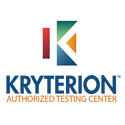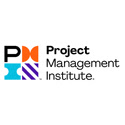Computer Hacking Forensic Investigator (CHFIv9)
About This Course
Coursework and training covered in EC Council’s CHFI certification aims to prepare individuals to spearhead incident response and cyber investigations using path-breaking forensic technologies. CHFI training bestows individuals with plethora of benefits.
Who Should Attend This Course
CHFI training program is best suited for science/technology and IT professionals.
The course is a perfect-pick-me-up for:
- Anyone who aspires to be a certified Computer Hacking Forensic Investigator.
- System administrators
- Professionals working at federal agencies
- Law enforcement personnel
- Government personnel
- Bankers and insurance professionals
- IT experts
- Legal experts
- Budding ethical hackers
Why This Course
Businesses all across the globe are enduring from the menace of cyber-attacks spearheaded by hackers! Thus, organizations are turning to recruit cyber hacking experts as their arsenal to deal with this menace. This brings into picture computer hacking forensic investigators, who are trained to analyze and investigate cyber hacking crimes. CHFI expert would apply a range of different strategies to collect legal evidence, recover deleted stuff, set up encryption, etc.
CHFI experts tend to earn around a whopping $96,000/ annum. (Source: .itcareerfinder and payscale)
Course Objectives
CHFI certified experts can:
- Perform forensics and incident response
- Crack open password protected data
- Identify images, data or any other malicious activity
- Skillfully investigate email crimes and cyberattacks
- Investigate computer break-ins
- Assess web page hacks
- Recover deleted data
- Conduct preliminary interviews
- Document cybercrime scene
Prerequisites
- Good knowledge of TCP/IP
- Minimum one year experience with managing Linux, Unix and Windows systems
- Good understanding of ethical hacking
Course Benefits
Computer hacking forensic investigators are in great demand by corporate, government, law enforcement, enterprise IT, BFSI (Banking, Financial Services and Insurance) sectors and needless to say, cybersecurity firms across the world. Most of these entities resort to EC-Council certified CHFI certification program. Cyber forensics is witnessing a sea change, since new tools and technologies are invented each day for conducting cyber investigations, be it digital forensics, cybercrime or data recovery.
- One of the notable benefits of CHFI training is that it teaches individuals about best practices for digital evidence examination, assessment of cybercrimes and diverse evidence rules.
- Training also teaches about steganography, which is a process to conceal video, image, file or message.
- The training will help individuals understand the roles of preliminary responders, securing cybercrime scene, documenting cybercrime scene, executing preliminary interviews, upholding electronic evidence and transporting the same.
- Individuals will also learn to recover deleted data as well as deleted partitions in all the popular operating systems (OS).
- The training will also enlighten individuals about password cracking concepts, investigation for password protected breaches and attacks.
- Learn various types of log capturing concepts and tools.
- Learn to investigate web attacks, wireless attacks, network traffic, etc.
- Learn about email crimes and investigation.





























